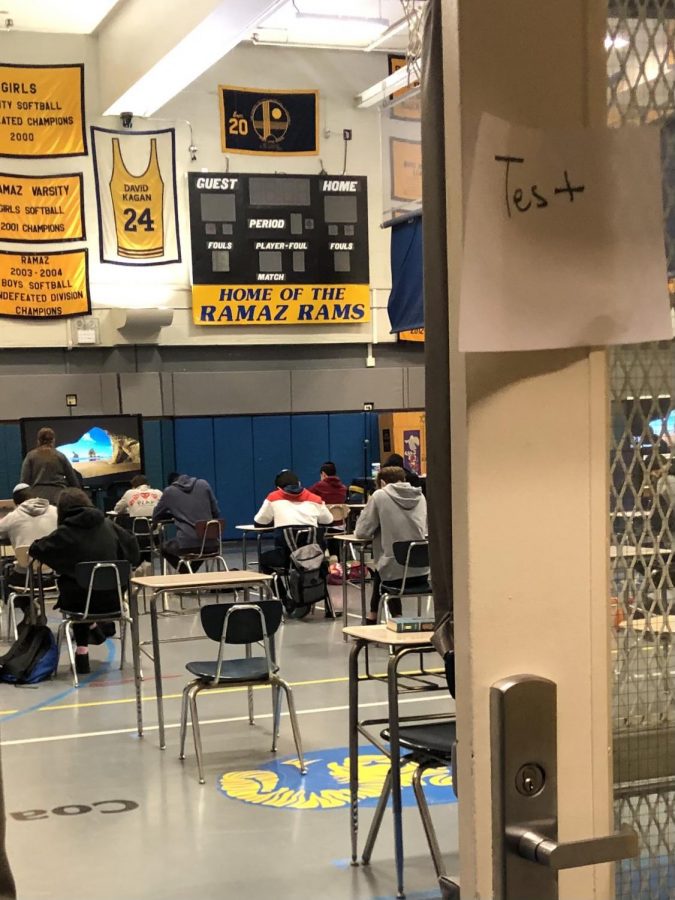Mental Health During a Pandemic
The pandemic has forced high school students to experience unforeseen challenges. A new school year typically causes anxiety, as students must adjust to new teachers and new classes with different classmates. However, Covid-19 has brought on additional abnormalities and has led many people wondering how students will obtain mental support.
The virtual school system has caused some students to feel a sense of loss, as they are more isolated than they have been in previous school year due to a lack of socialization with students and faculty. A poll sent out to 65 Ramaz students showed that 40% of students have been in low spirits lately. Other students are coping well and are not feeling down.
High school students are not the only ones feeling down during this time, many adults are in low spirits too. Dr. Zeitchik pointed out, “Kids do not exist in a vacuum. If families, faculty, or friends understandably feel stressed, kids will feel stressed. I do not want to make generalizations about how every student is feeling, but I do think there is an element of stress for kids which did not exist before Covid.”
Teachers are working hard to help their students during this challenging time, and students have expressed that teachers have been sensitive to their feelings. The same poll showed that 72% of students noted that their teachers have been asking them how they are doing during Zoom classes. Ms. Senders worries about her students’ “opportunities for socialization.” She noted that “given that we have such strict social distancing procedures in school and we really don’t have a lot of chances for students to just hang out, I’ve noticed that it’s not as easy for some of our 9th graders and transfer students to acclimate and meet people. If students aren’t given the opportunity to mesh together, and younger students miss out on that important bonding time with upperclassmen, that could also have a significant effect on mental health and just positive feelings about school in general.”
In addition, the Guidance Department has been working on ways to reach out to students and their families. Before the school year started, the guidance department sent a survey to parents asking them how their children are dealing with their situations. Over 200 parents responded to the survey, which demonstrates that the guidance counselors’ efforts of communicating with families have been effective and a helpful resource to many. Ramaz is paying proper attention to students’ mental health in a genuine way. While interactions during online school are more scripted, formal, and goal-oriented, there is still support available for students.
A main aspect that contributes to students’ negative thoughts about Covid stems from the fact that Covid has been going on for many months. Dr. Zeitchik noted, “People feel worn down from Covid and social distancing because this situation has gone on for many months. Even if people have adapted to Covid protocols and are used to social distancing, people do not feel a sense that there is an end in near sight. I think it is really difficult for people to be unsure of how long Covid will last.” When asked about his impression of his students’ mental health, science teacher Mr. Klotz said that he noticed a definite difference in his students’ demeanor when we switched to online classes last year. Mr. Klotz said, “I noticed many students were participating less in Zoom classes, and heard from quite a number of parents about how their kids were feeling down about the whole situation.”
Further, Dr. Zeitchik has noticed that Covid has made it fundamentally difficult for some students to learn. The pandemic can be distracting and make it difficult to focus on other aspects of life like school. Ms. Senders observed that a big difference between pre-Covid times and Covid learning is that she is “seeing some students become a lot more withdrawn over Zoom or with masks in the classroom.” Ms. Senders said, “I wonder what will happen to a generation of high schoolers who could potentially lose their sense of comfort, as well as their interest, in being really present and involved in their learning. For a teacher like me, who really thrives off the energy and dynamism of the classroom, it’s somewhat disheartening to really struggle with getting students motivated to chime in or feel comfortable sharing their thoughts.”
In addition to difficulties regarding learning, there is a significant correlation between mental and physical health. School nurse, Nurse Nechama said, “Mental pressures will always make a person more susceptible to physical difficulties. It is not uncommon for these mental pressures to cause symptoms such as headaches, stomachaches, etc.” The hybrid model of learning at Ramaz has created an unexpected normal. Some students make effortless transitions from in-person to virtual school, and find it easy to juggle the two types of learning. Other students find the inconsistency difficult to manage. Nurse Nechama said, “It is an aspect of human nature that consistency in a person’s life promotes stability and productivity. The reverse also holds true. Inconsistency will cause anxiety and unnecessary frustration.” Nevertheless, people are adaptable and can acclimate themselves pretty quickly.
Students who are struggling have access to many support systems. Nurse Nechama noted that “we don’t have to allow the physical distancing that protects us from Covid-19 to isolate us from the social support systems that help us cope.” Dr. Zeitchik offered some advice to students on how to stay positive amidst Covid. Not every student feels down during this time, but Dr. Zeitchik saids that the students who are really struggling during this time have to figure out who they can trust to get support. There is an important distinction between feeling stressed about individual events, and constantly feeling distressed to a point where it interferes with other aspects of your life. Dr. Zeitchik described a presentation Rabbi Steinmetz gave to the freshmen as “psychologically astute”. “The takeaway of the presentation was to look inwards and reflect on the things in life that are meaningful to you and then engage those significant relationships or activities. I would say that being in a mode of isolation makes most people very unhappy. We should make an effort to talk to the people who understand and support us, and to gravitate towards the things that we deeply care about.” In addition, Dr. Zeitchik thinks it is important for adults to encourage children to do the things they love (of course, in a socially distanced way).




